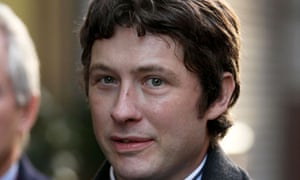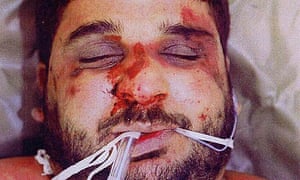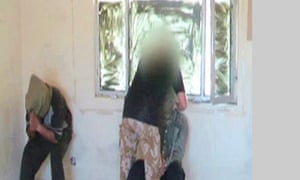https://books.google.co.uk/books?id=_9qS3IU_TecC&printsec=frontcover#v=onepage&q&f=false - A book going through the accounts and evidence surrounding the case. -
A Very British Killing: The Death of Baha Mousa
By A. T. Williams
Image 1 of 4
Baha Mousa and his family. He died after being taken to a British military base in Iraq in 2003 Photo: REUTERS
http://www.telegraph.co.uk/news/uknews/defence/8748790/Baha-Mousa-innocent-father-who-suffered-brutal-death-in-UK-military-custody.html
Baha Mousa: innocent father who suffered brutal death in UK military custody
Baha Mousa, an innocent civilian, welcomed the British forces who occupied his hometown of Basra in April 2003, because their arrival signalled the overthrow of Saddam Hussein.
Image 2 of 4
A post-morterm examination found Baha Mousa suffered asphyxiation and at least 93 injuries to his body
But less than half a year later the 26 year-old father-of-two had suffered a brutal, humiliating death at the hands of a small number of British soldiers he saw as liberators.
Two photographs graphically illustrate the horror of the hotel receptionists ordeal in UK military custody.
In the first, he and his wife Yasseh are smiling as they hold up their two young sons, Hussein and Hassan, the perfect portrait of a happy family.
The second picture, taken shortly after Mr Mousa's death, depicts his face bloodied and scarred, his nose smashed, his eyes bruised and medical tubes still in his mouth from attempts to revive him.
Mr Mousa's life was marked by hardship and tragedy before the turn of events that led to him being mistakenly arrested by British troops as a suspected insurgent.
As members of Iraq's Shia majority, his family struggled under Saddam's repressive Sunni-led regime.
His father, Daoud Mousa, was forced to retire from the police in 1991 after a violent Shia uprising in Basra, Iraq's oil-rich second city in the south of the country, at the end of the Gulf War.
Then his wife died of cancer in February 2003, aged 22, leaving him to bring up their children.
Mr Mousa made a living by importing new and used cars into Iraq from the United Arab Emirates.
His father stressed at the time: ''He was a peaceful man of impeccable character and a law-abiding citizen. He never had any problem with the police or the courts in any way whatsoever.''
After the US-led invasion of Iraq in March 2003, there were frequent power cuts, and some days there was no electricity at all, meaning it was painfully hot in the sticky summer months.
This was one reason why Mr Mousa took an extra job as a night-time receptionist at Basra's four-star Ibn Al Haitham hotel, which had its own generator so the air conditioning was always working.
He began working there less than a fortnight before British soldiers raided the hotel in the early hours of September 14 2003 looking for Saddam loyalists and Iranian insurgents.
The troops found AK47s, submachine guns, pistols, grenades, fake ID cards and military clothing, as well as photographs of Mr Mousa and some of his colleagues posing with the weapons.
Hotel staff said the guns were used for security and the pictures were taken for a joke.
But the finds were enough for the British soldiers to arrest Mr Mousa and nine other men on suspicion of being dangerous militants and take them back to their base at Darul Dhyafa.
Here the Iraqi detainees were hooded, shouted at, kicked, beaten, forced to stand in painful ''stress positions'' and made to scream in an ''orchestrated choir''. One was even ordered to dance like Michael Jackson.
But the worst of the abuse was directed at Mr Mousa, possibly in retaliation after his father complained that some of the British troops had stolen money from the Ibn Al Haitham hotel's safe.
Mr Mousa died at about 10pm on September 15 after a struggle with two of the soldiers. He had sustained 93 separate injuries, including fractured ribs and a broken nose.
His death devastated his family. His father – who had to identify his son's battered body – suffers flashbacks and nightmares about what happened.
Daoud Mousa laid bare his raw feelings when he told the public inquiry: ''There are moments when I am unable to control my emotions and cry because I miss Baha terribly.''
http://www.telegraph.co.uk/news/uknews/defence/8748981/Baha-Mousa-inquiry-former-soldier-says-he-is-sorry-for-everything.html
Garry Reader, a private with the former 1st Battalion the Queen's Lancashire Regiment (1QLR), which was responsible for arresting and holding the Iraqi civilian, said: "I'm sorry for everything".
Mr Mousa, a 26 year-old father-of-two, died after sustaining 93 injuries while in custody in Basra, southern Iraq, in 2003.
The major public inquiry into hotel receptionist's death, and the abuse of nine other Iraqi men held with him, will publish its findings on Thursday morning.
In a television interview given just hours before its publication, Mr Reader claimed all the soldiers on duty at the prison were to blame.
''We were told to keep them awake so they had sleep deprivation," said the Private Reader, who left the Army in 2007.
''They were put in stress positions. Basically that's what was told to us how to handle the situation.''
He added to ITV's Daybreak programme: ''We're all to blame, in our own way, every single one of us that was there has got our own bit to blame about. Those that didn't say anything should have said something.''
Asked if he was sorry, he said: ''I'm sorry for everything.''
The former infantryman gave evidence to the public inquiry into Mr Mousa's death in November 2009 and named the two men he believed caused his death.
He identified Corporal Donald Payne, who was acquitted of manslaughter, but became the first member of the British armed forces convicted of a war crime when he pleaded guilty at a court martial to inhumanely treating civilians.
He was sentenced to 12 months in prison and dismissed from the Army in disgrace. Mr Reader also named Private Aaron Cooper, who was not charged in relation to the death.
After the most expensive court martial in military history ended in 2007 with the acquittal of six soldiers and the conviction of Payne.
Seven members of 1QLR, including the battalion's former commanding officer, Colonel Jorge Mendonça, faced allegations relating to the mistreatment of the detainees at the high-profile court martial in 2006 and 2007.
During his evidence to the inquiry last year, Mr Reader recalled how the Iraqi being kicked and hit minutes before he died, and how he tried to resuscitate him.
"He looked dazed and didn't seem to me to be aware of anything," he said.
Mr Musa, a hotel receptionist, was not wearing a sandbag hood but his hands were tied with plastic handcuffs.
"I don't believe he was a threat. I do not even believe he was trying to escape, I just think he was injured and wanted help. Payne and Cooper were shouting, 'Get on the f****** floor'," Mr Reader recalled to the inquiry.
"One of them — I cannot remember which one — was trying to get the sandbag on his head. Baha Musa was struggling and he seemed to be trying to break free. I saw Payne and Cooper kicking and hitting Baha Musa."
http://www.theguardian.com/world/2012/dec/21/baha-mousa-doctor-struck-off
'Baha Mousa doctor Derek Keilloh struck off after 'repeated dishonesty'
Keilloh said he saw no injuries on Iraqi who died in British military custody after being tortured and beaten for 36 hours
A former army doctor found guilty of misconduct by medical watchdogs over the death of an Iraqi man who was tortured to death by British soldiers has been struck off the register.
Derek Keilloh was found to be unfit to continue to practise after a panel concluded that he acted in a dishonest way after the death of Baha Mousa in September 2003, and had failed to protect other men who were being mistreated at the same time.
The Medical Practitioners Tribunal Service, part of the General Medical Council (GMC), announced "with regret" on Friday that the only "appropriate sanction" was banning him from working as a doctor.
Mousa died after being forced into stress positions and beaten for 36 hours by soldiers of the Queen's Lancashire Regiment. A postmortem examination showed he had suffered 93 separate injuries, including fractured ribs and a broken nose.
The panel recognised that Keilloh did not harm Mousa and did what he could to attempt to save his life, in a setting that was "highly charged, chaotic, tense and stressful". But they ruled he must have seen the injuries and, as a doctor, had a duty to act.
The panel's members found that Keilloh had engaged in "repeated dishonesty" and "misleading and dishonest" conduct, lying to army investigators about the injuries and, in sticking to his story, giving false evidence in subsequent courts martial and a public inquiry. The panel also said Keilloh, knowing of Mousa's injuries and sudden death, did not do enough to protect his patients, the other detainees, from further mistreatment – breaking a "fundamental tenet" of the medical profession.
Dr Brian Alderman, the chairman of the panel, told him: "The panel has identified serious breaches of good medical practice and, given the gravity and nature of the extent and context of your dishonesty, it considers that your misconduct is fundamentally incompatible with continued registration."
Niall Dickson, chief executive of the GMC, said: "We recognise that this has been a particularly challenging case with difficult and unusual circumstances, but patients and the public must be confident that the doctor who treats them is competent and trustworthy."
Keilloh has 28 days to appeal.
Mousa, 26, a hotel receptionist and father of two young children, was arrested in September 2003 by British troops who believed, wrongly, that he was an insurgent involved in the killing of four of their colleagues the month before.
A public inquiry led by Sir William Gage concluded that Mousa's death was caused by one final assault by his guards following 36 hours of mistreatment. The inquiry's report strongly criticised the "corporate failure" by the Ministry of Defence and the "lack of moral courage to report abuse" within Preston-based 1 QLR.
It named 19 soldiers who assaulted Mousa and other detainees, and found that many others, including several officers and the regiment's padre must have known what was happening.
Before the inquiry's report was published, the MoD briefed journalists that Gage had found no evidence of systemic abuse by British forces holding and interrogating Iraqi prisoners. In fact, the judge concluded that "there is more than a hint that hooding, if not other conditioning practices, was more widespread than in just 1 QLR", but said he was unable to investigate just how widespread.
While the inquiry was in progress, the Guardian disclosed that all three branches of the British military had continued to train interrogators in techniques that included threats, sensory deprivation and enforced nakedness, in apparent breach of the Geneva conventions.
The decision on Keilloh comes 24 hours after the MoD said it had paid out £14m in compensation and costs to hundreds of Iraqis who complained that they were illegally detained and tortured by British forces during the occupation of the south-east of the country after the 2003 invasion.
Human rights groups and lawyers representing former prisoners are pushing for a public inquiry into British detention and interrogation practices in Iraq, which would trace responsibility for the abuse up the military chain of command and beyond, and shed light on the role played by military physicians.
Phil Shiner, the lawyer representing Mousa's family, said after Keilloh was struck off that "the medical profession is well rid of such a man". Indicating that legal action was being contemplated against other military physicians, he said: "All those UK doctors in Iraq who also saw signs of ill-treatment of Iraqi detainees but took no action had best start to instruct lawyers".
About 135 of the Iraqis who complained that they suffered severe mistreatment under British detention say they were examined by a doctor before interrogation. Many have alleged they suffered injuries – including fractures – when first detained, but that the doctors paid no attention to their wounds, and instead checked their heart rate and breathing before questioning.
Video evidence of some of the interrogations conducted by a shadowy military intelligence unit called the Joint Forward Interrogation Team (JFIT) supports allegations that detainees were starved, deprived of sleep, subjected to sensory deprivation and threatened with execution. Former JFIT detainees and their lawyers believe the British military doctors were examining prisoners before interrogation to establish that they would survive the ordeal ahead.
In December 2010, two high court judges ruled that allegations that more than 100 detainees had suffered systemic abuse was supported by evidence that "each detainee was medically examined at various points by doctors and medical operatives under a duty to report ill-treatment". When the court's judgment was brought to the attention of the British Medical Association, the organisation insisted it was unable to take action.
Although the BMA has a protocol for intervention to deal with human rights abuses by doctors, which calls for credible complaints to be forwarded to Amnesty International, it insisted that complaints about the activities of British military doctors in Iraq did not fall within its remit. A spokesman added: "The BMA's position is not based on whether BMA members have been involved."
Since that court judgment was handed down, the number of Iraqi civilians claiming to have suffered severe mistreatment in British military custody is said to have risen to more than 1,100.'
http://www.bbc.co.uk/news/uk-14845086 - video interview
'
Mousa inquiry: Former private Garry Reader on his remorse
8 September 2011 Last updated at 16:55 BST



No comments:
Post a Comment